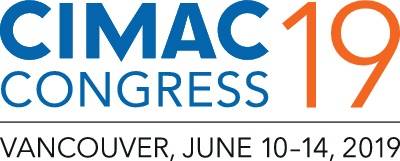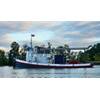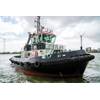CIMAC World Congress Tackles the Future of Engines
The CIMAC World Congress, held every three years, is arguably the most technically sophisticated meeting of literal 'power players'., The organization recently concluded its latest meeting, held June 10-14, 2019 in Vancouver, Canada, a meeting which was themed “Meeting the Future of Combustion Engines.”
CIMAC is not maritime specific, rather open to the power market in total, and in total more than 800 participants, exhibitors, and speakers from all parts of the world came to Vancouver for CIMAC’s congress. Undoubtedly reducing greenhouse gases (GHG) is the biggest challenge facing the large engine industry. Simultaneously the engine industry is contending with the “Initial Strategy” on decarbonization adopted by IMO in 2018, which for the targets total annual GHG emissions from international shipping as a whole, while the 2016 Paris Agreement on climate change calls for efforts to phase out GHG emissions in their entirety.
These two requirements have led to predictions that new ships will need to be completely climate-neutral by as early as 2030. What is undoubtedly true is that the large engine industry is facing paradigm changes, and this was reflected in the majority of papers in one way or another.
Mirroring the fact that engine efficiency has always been a primary goal of researchers and developers, a host of papers presented advances in traditional technologies with the potential to deliver useful contributions to GHG reduction via improved fuel efficiency.
On the other hand, many of the papers and the Congress’ panels and speeches, of views, looked at the radical solution: zero carbon fuels or fuels with greatly reduced CO2 emissions. The open panel discussions, in particular, led to controversial exchanges on suitable solutions for the future, including, prominently, the “power-to-fuel” strategy.
The unavoidable conclusion? Achieving the levels of GHG reduction prescribed is a mammoth undertaking and there is, and will be, no all-embracing “silver bullet” that will enable the IMO and Paris goals to be met. Nonetheless, from today’s perspective, options such as biofuels offer a partial answer while synthetic fuels will be necessary to ensure the engine industry can meet all expectations.
The importance of the GHG debate only partially distracted from other major industry concerns. The subjects scheduled for discussion and debate encompassed matters as varied as the vital interface between makers and users: Operators’ Voice and Case Studies from Operators; Future Challenges; Ideas for Future Developments; Regulations; Global Trends; and Enhancing Proven Technologies. Other major topics of discussion included:
-- 2020 Sulfur Cap
Affecting an estimated 70,000 vessels. the immediacy and extent of the IMO’s Sulfur Cap, reducing sulfur in fuels from 3.5 to 0.5% and coming into effect on 1 January 2020, meant that solutions to the new legislation were extensively presented in papers and intensively discussed in the forums.
-- Digitalization
With its wide implications for all aspects of shipping, digitalization represents another huge transformation, but one which is already underway. Accordingly, the sessions Digitalization and Connectivity led the technical program, followed by the similarly promising efficiency enhancers, System Integration, Electrification and Hybridization. The strong interest in these subjects was reflected in the animated exchanges of views at the panel where both these themes were expounded.














